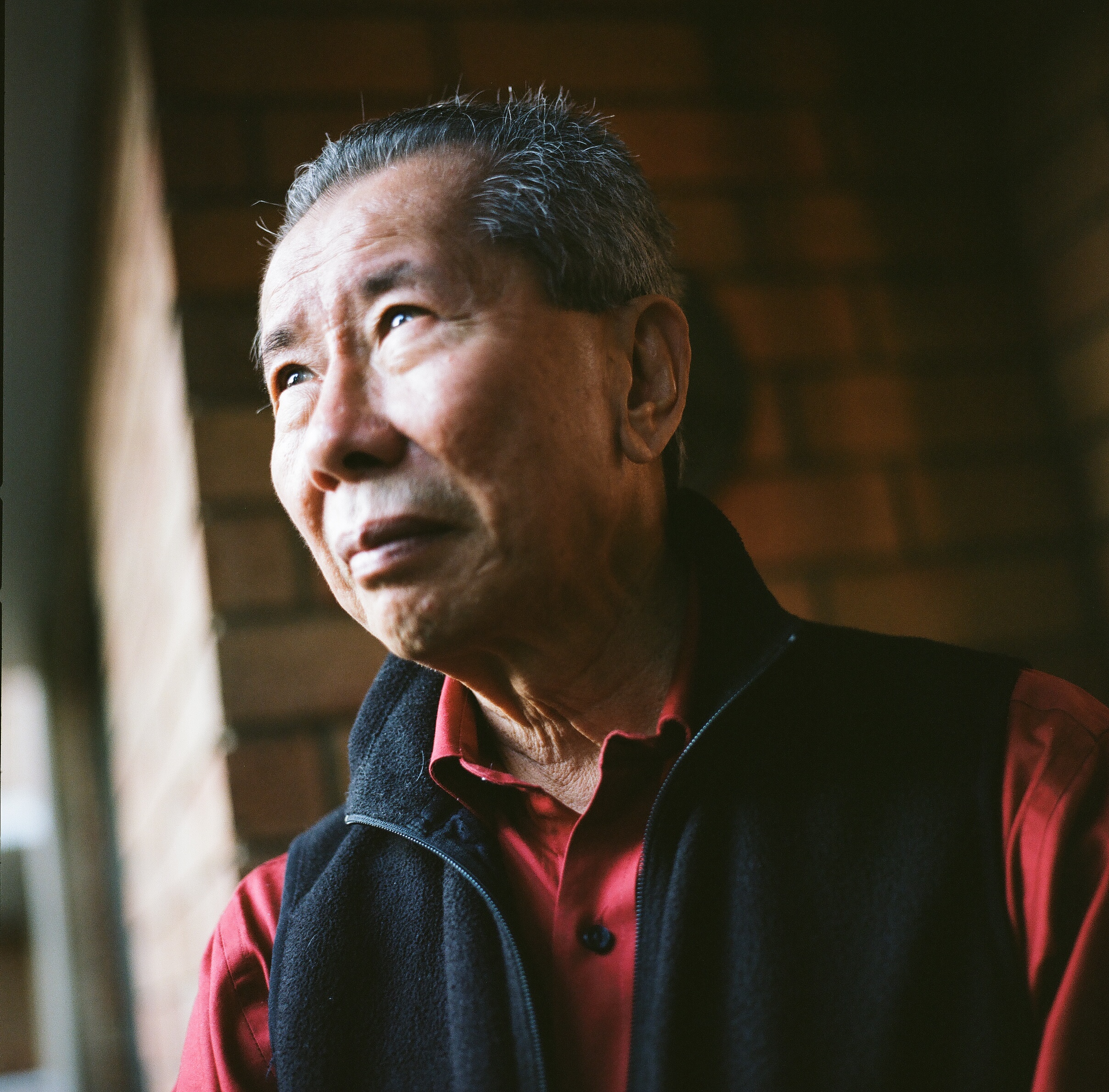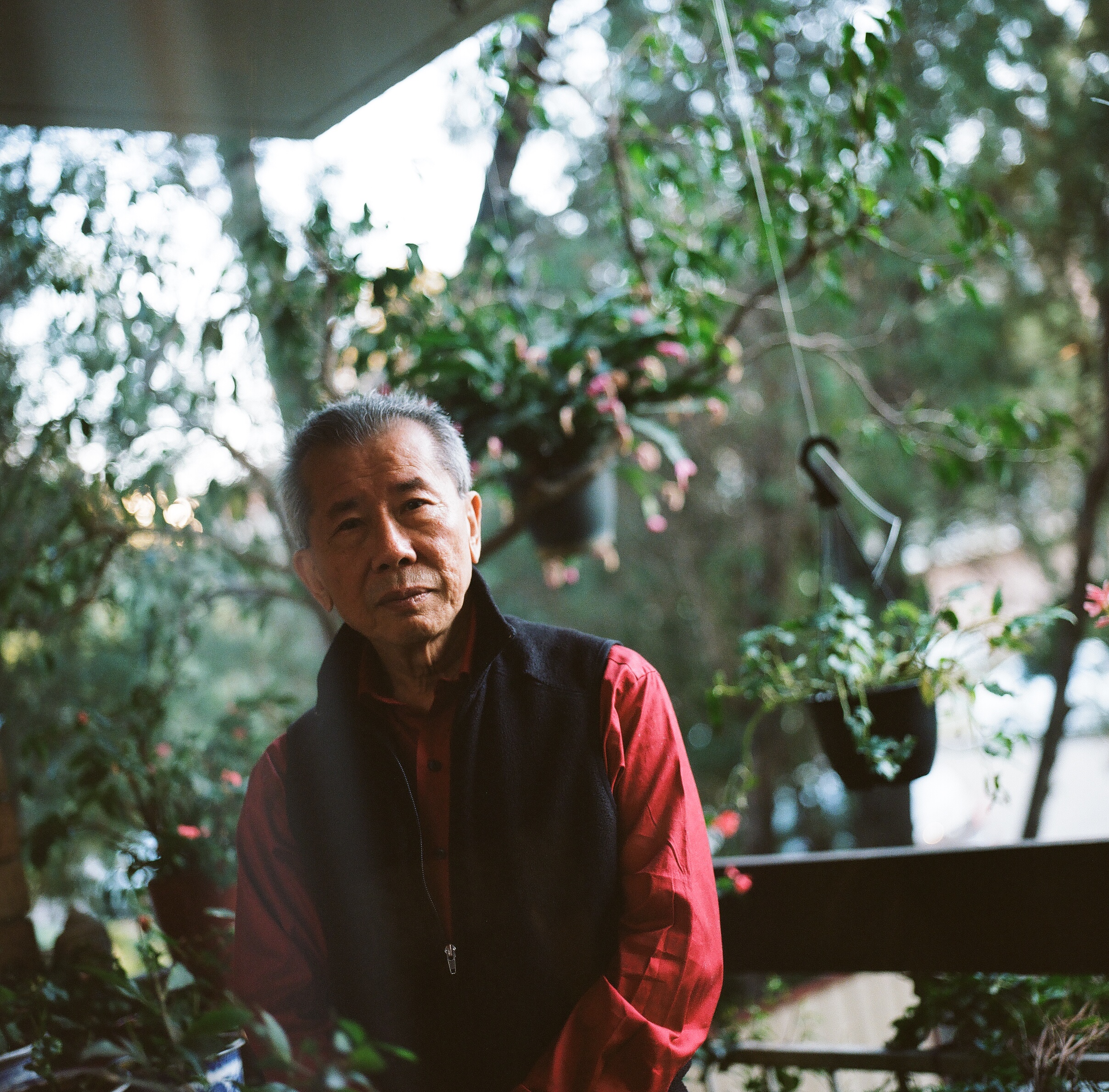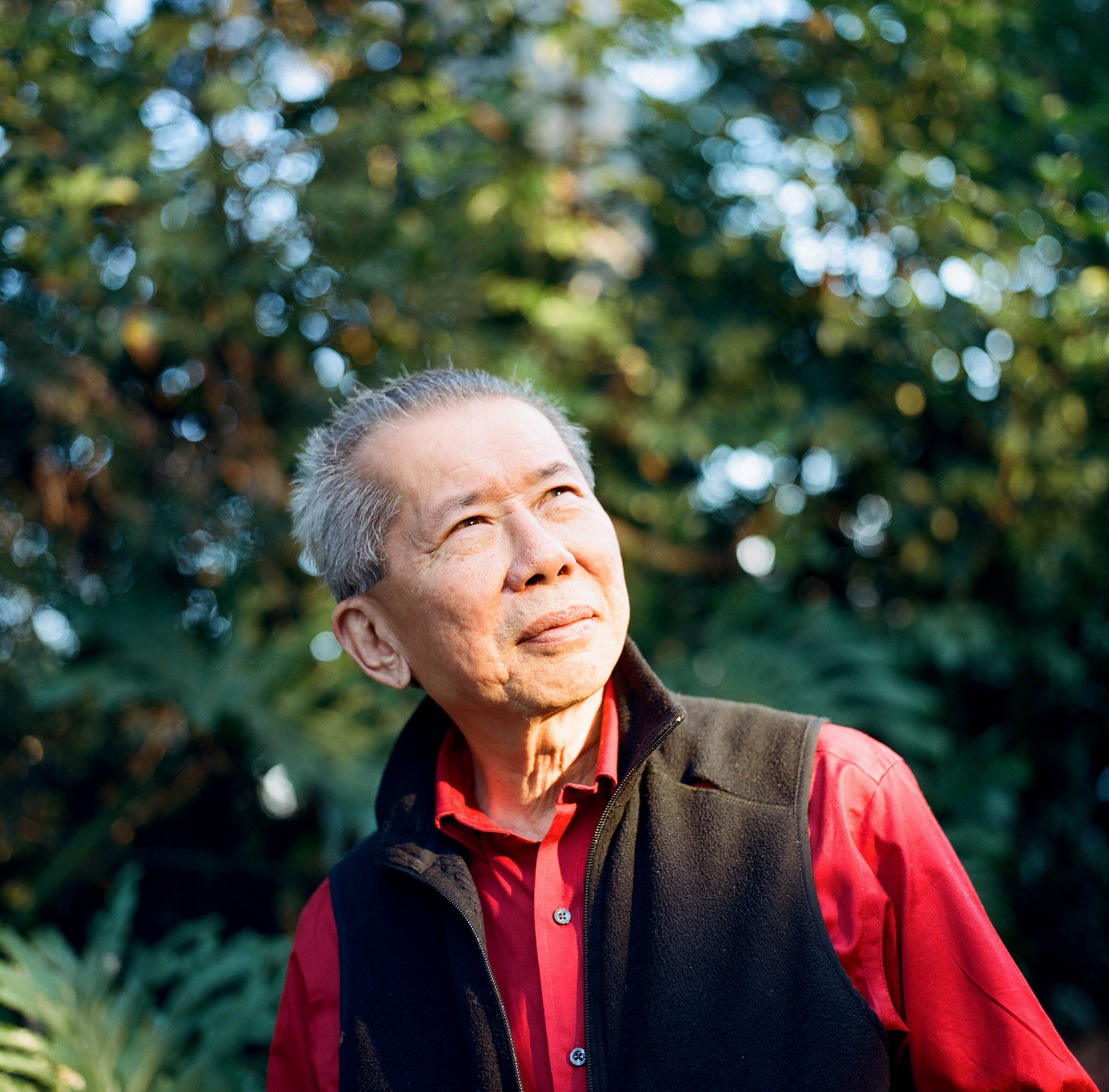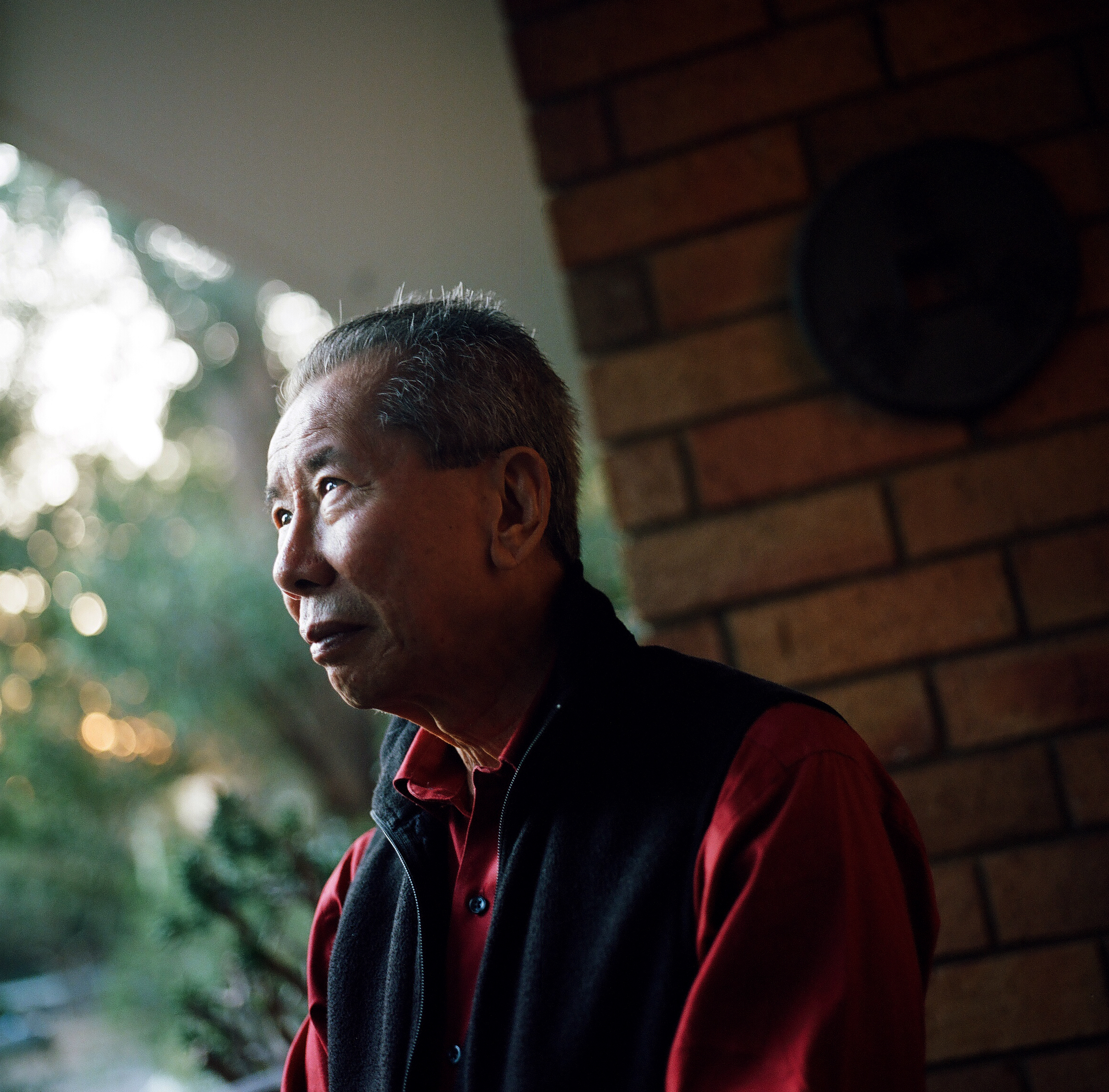Interview #100 — William Yang
by Alan Weedon
William Yang is a Chinese-Australian artist whose work interrogates Australian conceptions of race and sexuality. He is principally known as a photographer, storyteller, and writer, having first come to prominence with his 1977 exhibition Sydneyphiles, held at the Australian Centre for Photography.
Yang hasn’t shied away from taboo, using photography, and later, storytelling, as a way to open up conversations. Be it AIDS, sex or historical familial trauma, Yang possesses a stoic desire to unfurl stories that are otherwise rendered invisible. Yang’s work sits in significant collections around the world, including the National Gallery of Victoria, the National Gallery of Australia, and the Tokyo Metropolitan Museum of Photography.
William spoke to Alan about Australia’s gay liberation movement, queer Asian visibility and Australia’s conservative lurch in his lifetime.
I'll begin by talking about desire and attraction. In Australia, desire—particularly when it originates from gay Asians (not to mention older gay Asians)—is largely rendered invisible in mainstream culture. So I just wanted to start by asking, in this current moment, what turns you on?
I was brought up as an assimilated Australian so I thought of myself as a White person right until my mid-30s, where I had an epiphany and I embraced my Chinese heritage. Previously, I preferred White people as desirable objects. But it's been a slow process where gradually I've desired the Asian body more, and probably more now. Given a choice I think I'd prefer the Asian body. It just seems more comfortable for me.
In your 2014 documentary Friends of Dorothy, there was a particular phrase that really struck me. It said that men of Asian descent refusing to date each other was a refusal to “see the pain in themselves”. When you were growing up in Queensland—a place home to many brutish “masc” archetypes—did you have an internalised racism toward other Asian male bodies?
I haven't thought about that in that depth. I was just going along with popular taste and it's to do with what's in the magazines and especially what's on films. Films are the thing that predicates a lot of taste I think. Everyone is expected to perform as a “film star” and that seems to set the standard. But yes, I never saw that Asians were desirable.
When did that mindset start shifting?
Probably in the ’90s… as late as that.
Looking at your photobook Sydney Diary (1974-1984), there’s a particular focus on the white Anglo-Saxon archetype manifested as Bondi lifesavers. When I was flicking through the book I reflected on how little this has changed in 2018. However, I don’t imagine it would’ve been kosher to read it as homoerotic. Were these subjects overtly gay?
No, they were straight. Straight for all intents and purposes.
I was brought up as an assimilated Australian so I thought of myself as a White person right until my mid-30s, where I had an epiphany and I embraced my Chinese heritage.
Do you think those subjects were aware of appearing as homoerotic?
I used to hang out at the Tamarama Surf Life Saving Club a bit. I'd have friends there and some of them—I've photographed them—by and large didn't have any trouble with me photographing them. But a few others asked our mutual friend about my sexuality, I'm not sure whether it was in a threatened way. And, of course, now there’s a strong gay contingent at Tamarama SLSC.
But I don't think they were totally thinking about that, nor do I think they were homophobic. But I couldn't be sure about what they thought about it or how... they'd probably be embarrassed if they thought about it in homoerotic terms, but everyone's different.
In Brisbane, you studied architecture at the University of Queensland before the legal end of the White Australia Policy (with the Whitlam government finally ending the vestiges of that policy in 1973). When you reflect on that period, did you find there were any overt examples of discrimination towards people of colour?
I stayed at King's College, which was the Methodist College, and no, I wouldn't say that there was. In fact, there were certain Asians who were quite popular and they would've probably been more discriminatory against gays. There was not one out gay person in college. But later on, I knew some of them came out but I've never ever talked to them about that time.
Did you ever try and sort of surreptitiously tiptoe around sexuality to try and find queer communities at UQ at that time?
I hadn't really thought about it. I was quite closeted, in other words.
So I'm guessing Sydney was the big gateway?
Yes, it was. When I came to Sydney, I came to a new town and I had no case history there—I could reinvent myself. I moved there in the early stages of gay liberation in the 70s. I’ve written about this previously—it might have been in Friends of Dorothy—that I didn't consciously come out as a gay person, I was swept out by events at the time.
So there was definitely a tide there, but it didn’t happen quickly. Gay liberation was almost imagined pre-Stonewall, and then in a few years there was suddenly the “gay community”. In my opinion, it took about 10 years to develop a gay subculture from 1970 to 1980. I mean, it was all there in the 70s but it was quite slow developing, and it emerged in the 80s as fully-formed: a gay subculture with dress codes, body shapes and subcultures like the leather group. But there weren't any Asians within that mix.
I didn't consciously come out as a gay person, I was swept out by events at the time.
Between 1970 and 1980, were there other Asian peers in that tide that you mixed with?
There were but they weren't [represented] in the numbers that there are now. I initiated a group called Asian Lesbian and Gay Pride in the 1990s though we weren’t the first gay group. There were also groups Silk Road and Sydney Asian Lesbians, and we all started in a similar timeframe. That, to me, was the first public visibility of [queer] Asians and this was 24 years after the first Mardi Gras parade. So it took a long time for Asians to hoist the flag over the battlements.
I remember when the group first marched in the Mardi Gras under the Asian gay pride umbrella. They wore very elaborate costumes and heavy makeup to disguise themselves so it wasn't really as if they'd fully flung off the shackles. It was still very much under the guise of… well, being “behind the fan”.
Presumably that would’ve been because certain people weren't out at the time to their extended families?
Oh yes, yes, yes. I had a gay cousin but he'd never ever come out to the family, although I think they suspected it. And there was a code involved when we came back from Mardi Gras. His family said to him, “Oh, we saw you on the ABC”, and that was them saying, you’re gay, aren’t you? There was another person who was a schoolteacher and he felt that he couldn’t identify himself, despite having all his relatives in Malaysia. He didn't want his face shown, though all of his students recognised him, of course.
I'm guessing you had colleagues and friends who were quite comfortable in their sexuality but were too scared to come out in certain spheres of their life for fear of reprisals?
Absolutely. That still exists even today. Hopefully it's getting smaller now that marriage equality does sort of open a social door toward acceptance...
... As opposed to tolerance.
Yes, but there's always certain people—and I've probably even got them myself—where you don’t want them to know, like some of my neighbours.
…it took a long time for Asians to hoist the flag over the battlements.
In that burgeoning period of gay culture you describe, what was telling you that a subculture was going to burst into popular culture?
There was big activism in the 70s and 80s due to the decriminalisation of homosexuality, especially in Sydney where I'm stationed.
And from an intellectual perspective there were people like Dennis Altman.
I think Dennis was really a bit of an icon for the movement but there were other people too, like Lex Watson. There was this awful set-up from the ABC’s Monday Conference once where Lex was carted off to Mount Isa to face a very hostile crowd—it was ghastly, throwing him to the wolves. Someone from the crowd threw a bag of excrement at him. I suppose they were trying to prove that there was homophobia in the larger populace. It’s quite horrible when you watch it today.
So there was this visibility (and subsequent discord) happening at a national level, but there was also the burgeoning hedonistic party scene in Sydney. You talk about having your camera around you to access spaces and also to just physically take up space to participate, particularly in saunas. Did the camera protect you in some way from the excesses of that party madness?
Definitely. When you've got a camera you're a step back; you're looking at a scene without really taking part in it. You're actually watching it rather than participating, in that way. So yeah, I'd say that it did protect me from the worst excesses.
And, at various points, people would have invited you to participate. Say there were lots of drugs happening in the corner, or if an orgy was happening over there…
…Oh, I'd go to the orgy but I wouldn't take any drugs—but I'd put down my camera for the orgy. In fact, I know this sounds a bit virginal (I wasn't very virginal), someone actually forced me to sniff some powder. It was just a social situation but he was so insistent I thought, “Oh god, I'll just sniff it” so he would leave me alone. But I couldn't take photographs for the rest of that night… I’ve never forgiven him for that, by the way.
One of the things that I found quite interesting when viewing Friends of Dorothy was hearing you talk about how your first experiences with gay sex were physical. You were at a party or a dance at the University of Sydney with all these men with their tops off. For kids today, sex is accessed digitally, without having to enter a space and figure out what gay sex “is”. What are your thoughts on the ways that sex and sexuality have become so ubiquitous online?
I don't know… I think it's easier to find. But the drawback about it is that there's no socialisation around it. Like, if you had to go to a bar or something to do the same business, at least there was some sort of socialisation. You'd meet other people and there'd be a gathering or something and then there could even be a show. Whereas now, I think it's quite a solitary event just on the phone.
Have you had a play around with apps?
Yes, I've used the apps and I like them.
Why?
Because you can be particular on an app. “Older Asian”... that's not a very attractive quality but people can find you if they have that preference. And prior to the internet, we probably could have never found each other. One of the things that I find interesting about apps is that you would meet people you otherwise would never have met in a lifetime. But I'm sure you've also probably come up against the litany of horrible, awful humans on gay sex apps like Grindr with profiles stating “no fats, no femmes, no Asians”.
When you've got a camera you're a step back; you're looking at a scene without really taking part in it. You're actually watching it rather than participating, in that way.
And so for non-white people like ourselves, have you developed a thick skin to this overt discrimination?
Well, I just accepted that as the norm, really. I've always found it throughout my whole sexual “career”. It's hard for me just to go to someone that I fancy, because the chances are that, for whatever reason, he wouldn't be interested in me—the low likelihood because I'm Asian or something. And now I'm Asian and old, so that's a double whammy. From my position in a white society, I’ve had to let people approach me.
When you were younger in Sydney, did you find there was a lot of ageism in the gay community?
Possibly, yes, but I didn't think about it... and probably I wasn't interested in older people (so yes, there was ageism). But actually, I think there's more tolerance for Asians now than there was then and I don't quite know the process of why that is. There's a sauna in Sydney called 357 in Haymarket and half the people who go there are Asians. I think people just gravitate there. I've never been to the other saunas but I should imagine that there'd be very few Asians at the other saunas.
One of the things that I feel unites first-generation Asian-Australians is the desire to please your parents. Why were you fixated on pleasing your parents growing up?
I think it's a totally normal thing to do because they brought you up and you know their desires and you'd want to please them. But there was certainly a time in my early 20s when I was rebellious and I wanted to break away from all of that.
... Well, you discovered LSD.
Yes. [laughs] But then when I came back to the family, I didn't rock the boat so much.
You said that your mother was never comfortable with your sexuality. And obviously you've made it clear that you have since made peace with that in her lifetime. Did she articulate anything concretely as to why she was never comfortable? Or was it just a cultural-generational thing?
Oh, it was a cultural-generational thing. I knew what she thought and she'd make comments. There'd be a gay demonstration on the television and she'd say something along the lines of, “They should be locked up.”
… Would she goad you?
She wouldn't goad me but these were her unfiltered comments. This was before I'd actually told her.
It very much speaks to a bygone era. Although, given the same-sex marriage debate, there are still elements of that in Australian society today.
Yeah, definitely. But at least we got majority approval. It shouldn't have happened but since it did happen and since we won, it's a very tangible thing to have. It's a very tangible statistic.
I want to talk about how Australia's changed over the span of your career. One of the things that I think about when reflecting on this is looking at the switch from Keating to Howard. The Sydney 2000 Olympics opening and closing ceremonies was a perfect example of how Australia does camp really well. We had that in 2000, and then Howard’s genteel, small, conservative Australia took hold. How did things manage to get dialed back on such a grand scale?
I've thought of it like a pendulum swinging. The 70s were unbelievable. I mean it's hard for me even to imagine the 70s let alone you who's never experienced it. And then everything got more conservative and more conservative. I think Howard was an evil person and culture changed slowly at a global level. There was the 2008 financial crisis. That made everybody nervous, made everybody small-minded and unadventurous.
The 70s were unbelievable. I mean it's hard for me even to imagine the 70s let alone you who's never experienced it.
When I reflect on your career from 70s to the 90s, you captured this bold expression of a progressive Australia that retracted from the 2000s. Would you say Sydney’s changed significantly, too?
That's a hard question to answer because you come to the city at various stages of your life. When you're in your 20s, you access a different world than, say, if you were 60. But I do trace the history of gay culture in my books. The way I see it was that the 70s had the politics, the forming of a subculture; the 80s was the commercialisation of that subculture, leading to the pink dollar and Oxford Street; and then in the 90s there was AIDS devastation. You can’t talk about the gay community without mention of HIV/AIDS, a total devastation, though people survived.
In time, Mardi Gras became corporate and it was huge. The 90s Mardi Gras were shows with big budgets that all collapsed at the end of the decade. They nearly stopped. And the reason for that was because there was a generational changeover, and it took the organisers a while to sort that out. So the Mardi Gras went through a few near-death experiences and now it’s a no-frills Mardi Gras. None of the big budgets of the 90s are there. And it is quite exuberant, it’s inclusive, but there's a touch of mediocrity to the Mardi Gras now. There’s lots of energy and lots of visitors but it doesn’t have the dynamic spark to it like there was in the 80s.
What I think has happened is that they’ve worked out their format and they’re sticking to it. I don't mean to knock them or anything—it’s still pretty great that it's going. It still has lots of energy and enthusiasm, I always come away from Mardi Gras feeling like it was a great event because of all of the young people… but at the same time, it’s a long event to sit through.
Who inspires you?
George Gittoes, friend and artist, inspires me by his sheer determination and doggedness to make art. He's always at it, either painting or making films, going off to different parts of the world. After a meeting with George, which can leave me exhausted, I feel I should be bolder. But then I go back to being me.
How do you practise self-care?
I watch my diet, eat in moderation, and I try to exercise more. I’m bad at exercise.
What does being Asian-Australian mean to you?
I regard myself as Australian, but as a deep subtext to my life, I always remind myself, people are seeing you differently because of the way you look.
I regard myself as Australian, but as a deep subtext to my life, I always remind myself, people are seeing you differently because of the way you look.
Find out more
Interview by Alan Weedon
Photographs by Leah Jing McIntosh






